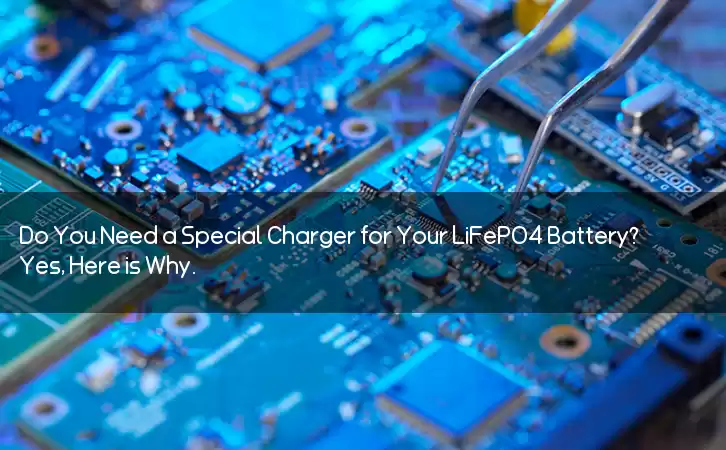Information Center
Do You Need a Special Charger for Your LiFePO4 Battery? Yes, Here is Why.
Published:2023-07-29 00:32:33 Author:Green WCND Views:49Lithium Iron Phosphate (LiFePO4) batteries have become quite popular in recent years due to their impressive features such as longer lifespan, lightweight, and high performance. With the increased usage of LiFePO4 batteries in powering electric cars, solar panels, and RVs, a common question that arises is whether these batteries need a special charger or not. In this article, we will explore the answer to this question.

To start with, LiFePO4 batteries require a special charger and cannot be charged using a regular lead-acid battery charger. This is because the charging process for LiFePO4 batteries is quite different from that of other batteries. LiFePO4 batteries have a specific charging algorithm that needs to be followed for optimal performance and longevity. If a regular lead-acid battery charger is used, it could damage the LiFePO4 battery, causing it to underperform or even fail.

The charging algorithm for LiFePO4 batteries is what makes a special charger necessary. These batteries require a constant-current/constant-voltage (CC/CV) charging algorithm. This means that the battery needs to be charged at a constant current until it reaches its maximum voltage, after which the voltage is held constant while the current is reduced gradually until the battery is fully charged. If the charging current is too high, it could overheat the battery, and if the voltage is too high, it could cause the battery to become damaged or even explode.
Furthermore, a LiFePO4 battery charger needs to have a balancing function to ensure that each cell in the battery pack is charged to the same voltage level. The charger achieves this by monitoring the voltage of each cell and adjusting the charging current accordingly.
It is also worth noting that LiFePO4 batteries have a lower charging efficiency compared to lead-acid batteries. While lead-acid batteries have a charging efficiency of around 80%, LiFePO4 batteries have a charging efficiency of around 95%. Therefore, a LiFePO4 battery charger needs to be more efficient to compensate for this difference.
Additionally, LiFePO4 batteries have a higher tolerance for overcharging compared to other types of batteries. However, overcharging can still damage the battery over time, reducing its lifespan. A special charger for LiFePO4 batteries has a built-in overcharging protection system that prevents the battery from being overcharged.
In conclusion, LiFePO4 batteries need a special charger for optimal performance and longevity. Using a regular lead-acid battery charger can damage the battery, resulting in underperformance or failure. A LiFePO4 charger needs to have a CC/CV charging algorithm, balancing function, high efficiency, and overcharging protection system. It is important to use the right charger for LiFePO4 batteries to ensure that they perform optimally and to enhance their lifespan.
The battery pack is the heart of a golf cart, silently powering every acceleration and climb on the green. However, battery degradation often goes unnoticed, mu···
The battery pack is the heart of a golf cart’s power system, yet maintaining it has long been a challenge for technicians. Traditional troubleshooting methods—···
For golf course managers, ensuring smooth and efficient operations is crucial for providing a memorable experience for golfers and maintaining the reputation of···
A battery tester ensures golf course cart batteries operate efficiently and reduces downtime through the following ways:I. Precise Battery Condition DiagnosisOp···





